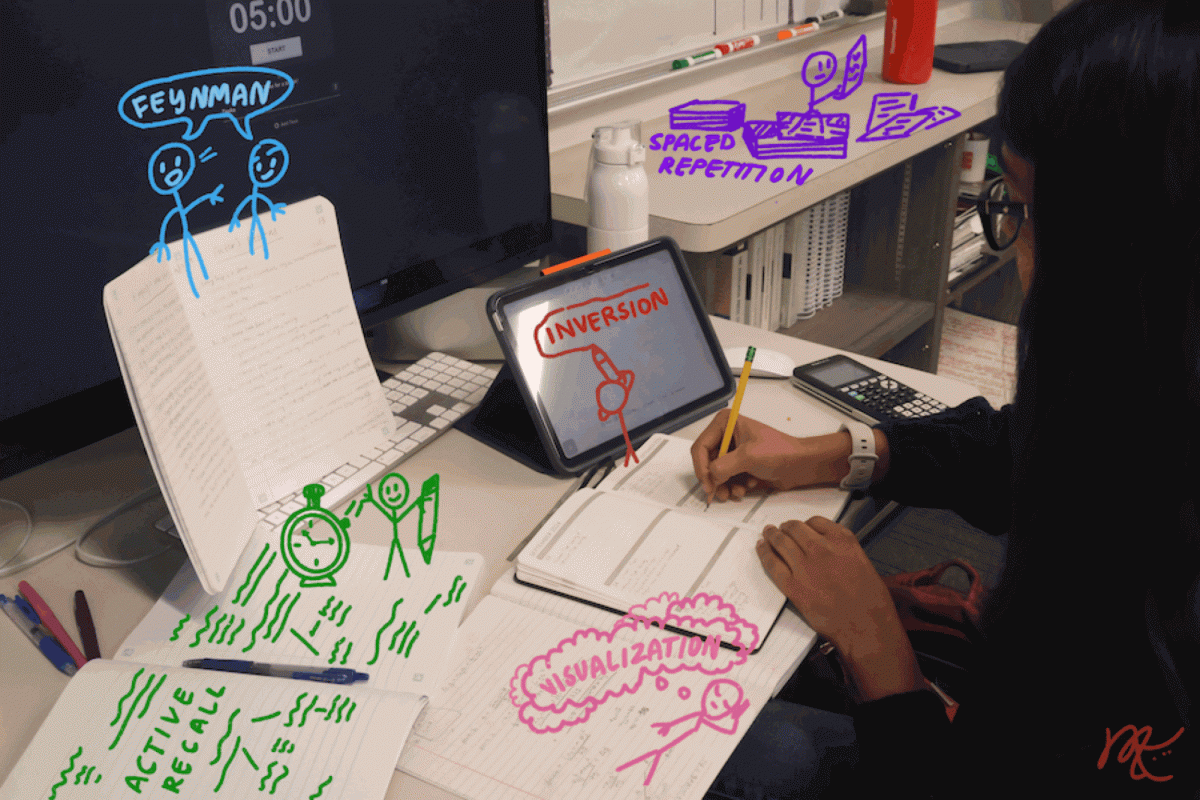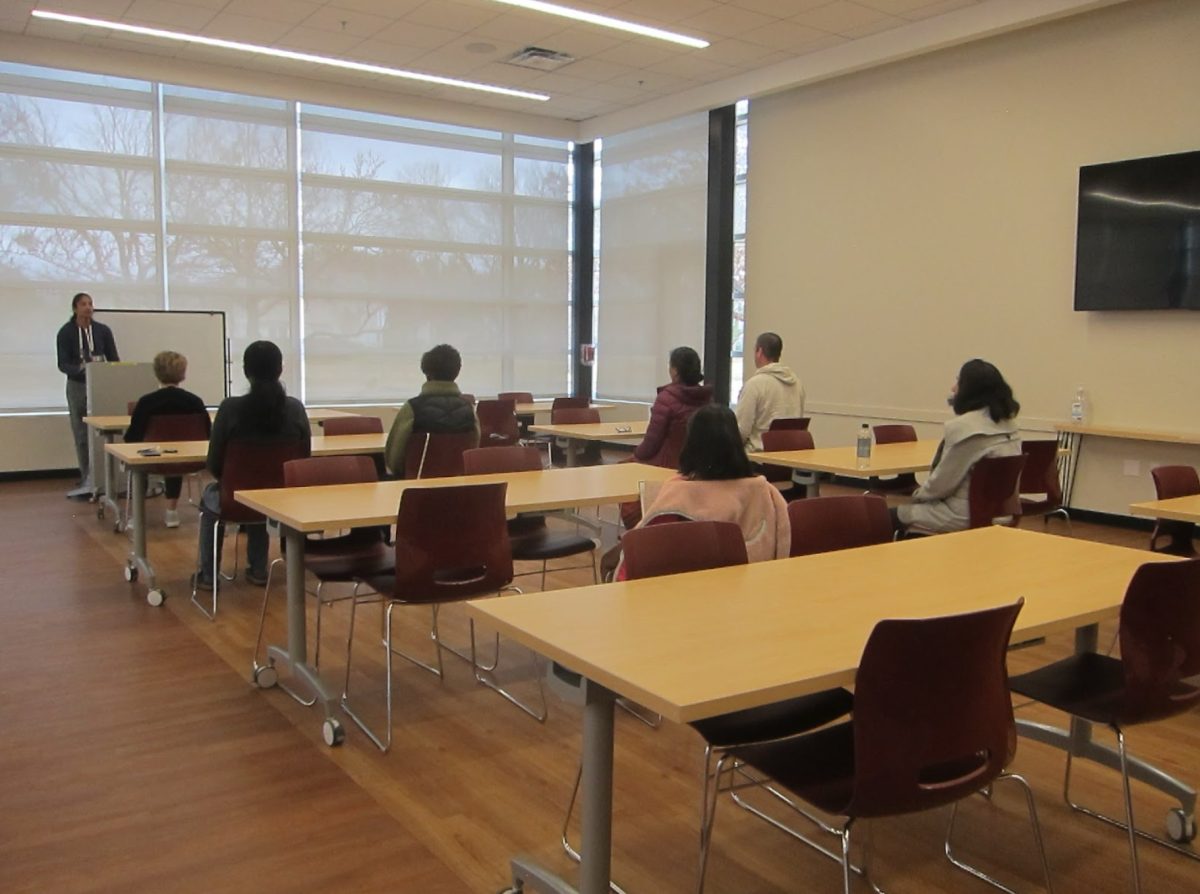72.
You get back your test and see the big fat number staring at you. “How could this have happened? I studied for five hours,” you think to yourself, feeling defeated.
Like in relationships or fitness, quality over quantity is highly applicable to studying as well. We all have lives outside of school and should not have to sacrifice the school-life balance for good grades.
To fix this, there are a multitude of methods to help you work smarter and achieve your academic goals.
Spaced repetition
Spaced repetition is a more active take on studying flashcards. The main difference is spaced repetition requires the brain to come up with its own response rather than skimming over text that it is less likely to remember.
Here’s how it works. Make a typical stack of flash cards with questions, terms or whatever else you learn best with. After reviewing the flash cards, don’t look at them for a few days. When you come back, go through the flash cards again and try to remember whatever you had learned days prior.
Allowing yourself to rest and sleep helps the brain strengthen neural connections, making the information stick better. One thing that you need to make this method work is time, as implied by the name. Studying earlier with this method solidifies your understanding of the material.
Active recall
If you need a less time-consuming study technique, active recall is for you. This strategy is scientifically proven to help the brain learn extremely efficiently. Usually, students skim textbooks or review past quizzes to study, but passive learning only helps you absorb surface level information.
Rather, try constructing mind maps or writing down everything you can possibly remember about the topic you are studying. This helps the brain regurgitate information as opposed to simply recognizing it. It might feel hard when first starting, but you will gain momentum. Afterwards, you will easily identify gaps in your knowledge and can go back to review those topics again.
Feynman technique
Aristotle once said, “Teaching is the highest form of understanding.” The Feynman technique takes advantage of this fact. It is a form of active recall in which you verbally assess your understanding. If you like studying with others, this method likely suits your interests.
For this technique, you need another person. Explain the concept you are studying in the simplest way possible. This, in turn, helps your brain hear simplified information and makes the information more comprehensible. It will also help you organize information in your brain, since you can’t teach in a random order.
All of this makes neural connections stronger and faster. If you find yourself unable to teach something well, it is likely that you haven’t understood it well, making this technique useful in identifying your areas of weakness.
Inversion
If you like engineering and science, this technique might come easier to you. Just like scientists question what could go wrong and make the appropriate adjustments to prevent those errors, you generate your own what if questions. Essentially, you are creating your own quiz.
Often, teachers test a higher level of thinking than most students even consider when studying. By preparing for all possibilities, you expand your capabilities and maximize a holistic understanding of concepts. Twist practice questions you have already seen to train your brain in new ways.
Visualization
Your senses allow you to process information better by accessing more areas of your brain. As a result, it creates more neural connections to recall information in assessments. Visualization is particularly useful for engaging a more creative portion of your brain.
This technique works by visualizing images of topics you are reviewing. Try creating a story or making it funny because the brain learns better when you are having fun. When creating images in your mind, make sure to recall and add as many details as you can.
If you can’t visualize, it could indicate a lack of understanding. This technique is particularly useful when studying processes, so make sure you have a solid understanding of the concepts before using it.
There are many more fun methods to maximize learning. The key is finding a fun technique. Though learning might seem like a chore, it benefits you to challenge yourself and enjoy expanding your horizon of knowledge. The most important thing to remember is to take advantage of the time you have at school. This allows you to have more time at home for activities, sleep and relaxation.
Follow @deepali0914 and @CHSCampusNews on X.











